
Novi Sad: The Serene Heart of Serbia
Novi Sad, nestled on the banks of the Danube River, is a gem waiting to be discovered. Known for its vibrant culture and rich history, this city offers a blend of architectural wonders, scenic beauty, and a warm, welcoming atmosphere. A visit to Novi Sad promises a journey through time, from its historic Petrovaradin Fortress to the charming streets of the Stari Grad (Old Town). Start your exploration with a walk along the Danube Promenade, where you can enjoy stunning river views and lush green parks. The Petrovaradin Fortress, often called the 'Gibraltar on the Danube,' is a must-see. This impressive fortification dates back to the 17th century and offers panoramic views of the city. Within its walls, you'll find art galleries, museums, and even a clock tower that famously runs on 'Novi Sad time,' with the minute and hour hands reversed. Culture enthusiasts will love the Matica Srpska Gallery, home to an extensive collection of Serbian art. For a touch of modernity, visit the lively Zmaj Jovina Street and Dunavska Street, lined with cafes, shops, and street performers. Don’t miss the Novi Sad Synagogue, a beautiful example of Art Nouveau architecture, which also serves as a cultural venue. Novi Sad is also famous for hosting the EXIT Festival, one of Europe's largest music festivals, held at the Petrovaradin Fortress. This event attracts music lovers from all over the world. If you visit during the festival, you'll experience the city at its most vibrant and lively. Foodies will delight in the local cuisine, with hearty dishes like sarma (cabbage rolls) and ćevapi (grilled meat) waiting to be savored. Whether you're keen on history, culture, or just soaking up the serene ambiance, Novi Sad has something for everyone. It's a city that invites you to slow down and enjoy the simple pleasures of life.
Local tips in Novi Sad
- Visit the Petrovaradin Fortress in the evening for breathtaking sunset views over the Danube.
- Take a leisurely stroll along the Danube Promenade for a relaxing afternoon.
- Try the local cuisine at one of the traditional kafanas (taverns) in the Old Town.
- If visiting during EXIT Festival, book your accommodation well in advance as the city gets crowded.
- Explore the nearby Fruska Gora National Park for a day trip filled with nature and wineries.
Neighbourhoods in Novi Sad
Novi Sad: The Serene Heart of Serbia
Novi Sad, nestled on the banks of the Danube River, is a gem waiting to be discovered. Known for its vibrant culture and rich history, this city offers a blend of architectural wonders, scenic beauty, and a warm, welcoming atmosphere. A visit to Novi Sad promises a journey through time, from its historic Petrovaradin Fortress to the charming streets of the Stari Grad (Old Town). Start your exploration with a walk along the Danube Promenade, where you can enjoy stunning river views and lush green parks. The Petrovaradin Fortress, often called the 'Gibraltar on the Danube,' is a must-see. This impressive fortification dates back to the 17th century and offers panoramic views of the city. Within its walls, you'll find art galleries, museums, and even a clock tower that famously runs on 'Novi Sad time,' with the minute and hour hands reversed. Culture enthusiasts will love the Matica Srpska Gallery, home to an extensive collection of Serbian art. For a touch of modernity, visit the lively Zmaj Jovina Street and Dunavska Street, lined with cafes, shops, and street performers. Don’t miss the Novi Sad Synagogue, a beautiful example of Art Nouveau architecture, which also serves as a cultural venue. Novi Sad is also famous for hosting the EXIT Festival, one of Europe's largest music festivals, held at the Petrovaradin Fortress. This event attracts music lovers from all over the world. If you visit during the festival, you'll experience the city at its most vibrant and lively. Foodies will delight in the local cuisine, with hearty dishes like sarma (cabbage rolls) and ćevapi (grilled meat) waiting to be savored. Whether you're keen on history, culture, or just soaking up the serene ambiance, Novi Sad has something for everyone. It's a city that invites you to slow down and enjoy the simple pleasures of life.
When is the best time to go to Novi Sad?
Iconic landmarks you can’t miss
Danube Park
Explore the tranquil beauty of Danube Park in Novi Sad, a lush urban oasis perfect for relaxation, cultural experiences, and stunning river views.
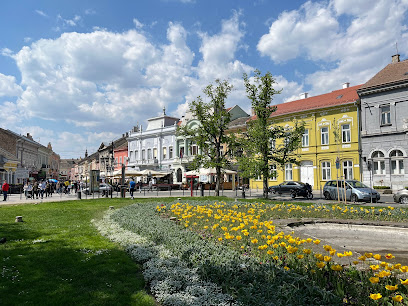
Petrovaradin Fortress's Clock
Discover the iconic Petrovaradin Fortress's Clock, a historical gem offering breathtaking views and a glimpse into the rich heritage of Novi Sad.
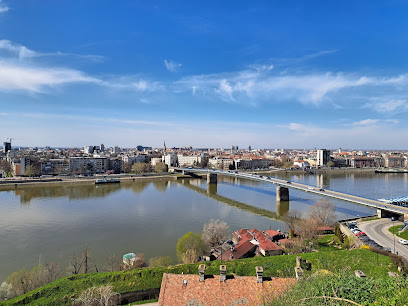
Futoška pijaca
Discover the vibrant atmosphere of Futoška Pijaca, a must-visit market in Novi Sad offering fresh produce, local delicacies, and an authentic Serbian experience.
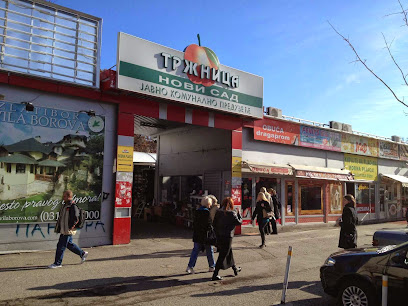
Limanski Park
Explore Limanski Park, a tranquil haven in Novi Sad, renowned for its lush landscapes, playgrounds, and serene atmosphere perfect for relaxation.
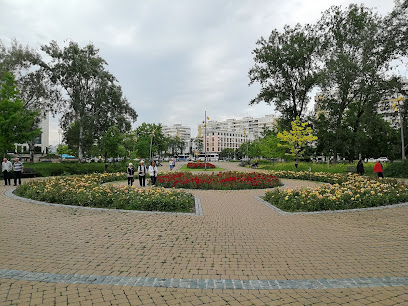
Limanska pijaca
Explore Limanska Pijaca, Novi Sad's bustling market, and indulge in fresh produce, local crafts, and an authentic taste of Serbian culture.
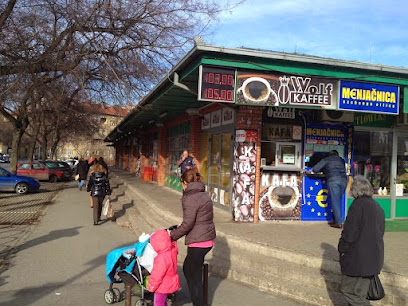
Plava Frajla
Discover the authentic flavors of Serbia at Plava Frajla, a must-visit restaurant in Novi Sad for an unforgettable dining experience.
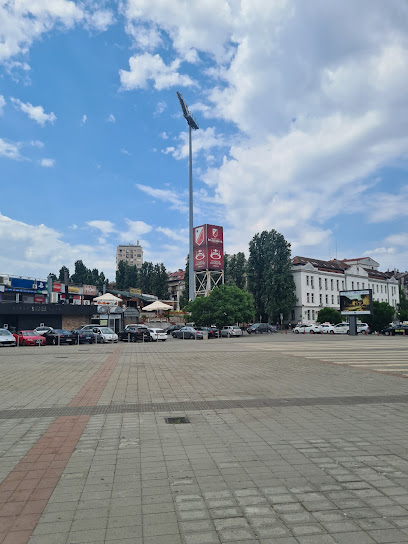
Name of Mary Catholic church
Explore the stunning Name of Mary Catholic Church, an architectural masterpiece and tranquil retreat in the heart of Novi Sad's cultural landscape.
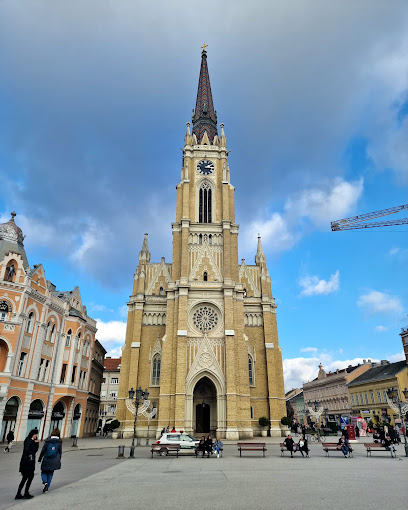
Lazino Tele
Dive into the lively atmosphere of Lazino Tele, a vibrant pub in Novi Sad offering a mix of local brews, music, and unforgettable nightlife experiences.
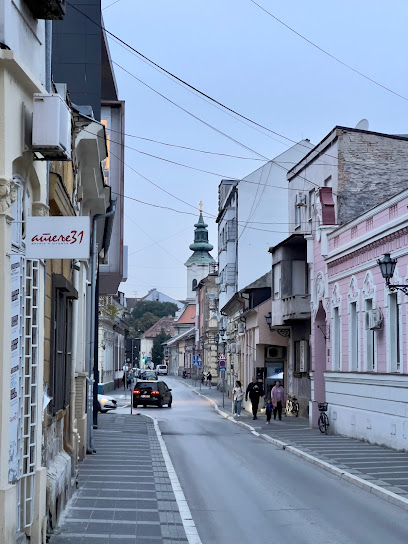
Novi Sad Synagogue
Explore the architectural beauty and profound history of the Novi Sad Synagogue, a cultural landmark reflecting the Jewish heritage of Serbia.
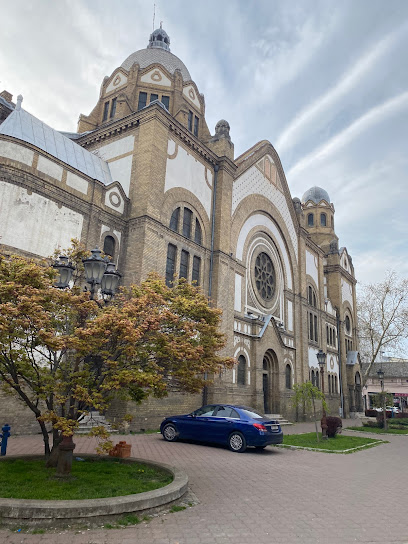
Vulkan
Explore Vulkan Bookstore in Novi Sad, a literary treasure trove filled with diverse books, stationery, and vibrant cultural events.
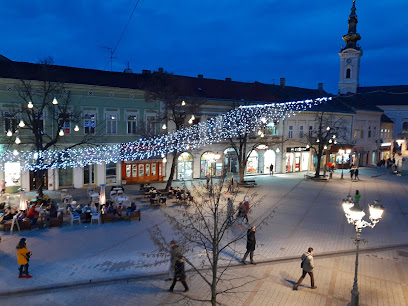
Monument of Svetozar Miletić
Discover the rich history of Novi Sad at the Monument of Svetozar Miletić, a significant cultural landmark that embodies the city's heritage and vibrant atmosphere.
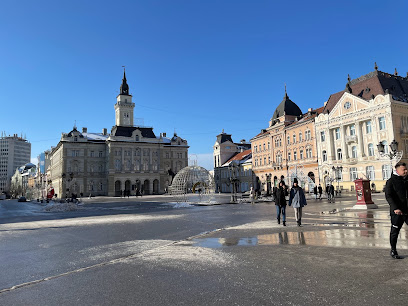
Viper Escape Rooms Lokacija 1
Experience the thrill of mystery and adventure at Viper Escape Rooms in Novi Sad - an exciting escape room center perfect for friends and families.
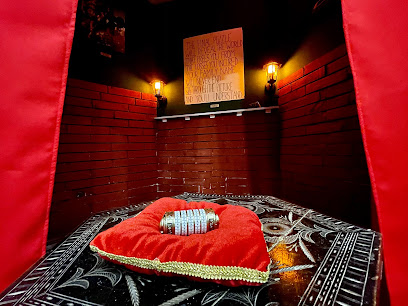
Korzo park
Experience the ultimate family fun at Korzo Park, the top children's amusement center in Novi Sad, filled with thrilling rides and joyful memories.
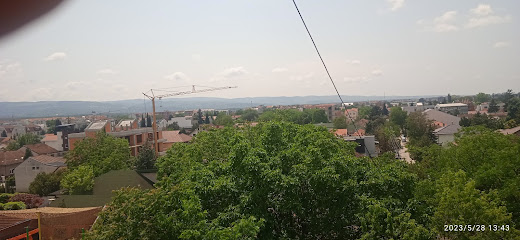
Cultural Center LAB
Discover the vibrant arts scene at Cultural Center LAB in Novi Sad, where creativity and community come together in a modern cultural hub.
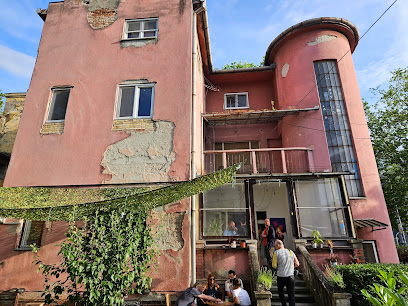
Hotel Leopold I
Discover the elegance of Hotel Leopold I, a luxurious stay within the historic Petrovaradin Fortress, offering stunning views and rich cultural experiences in Novi Sad.

Unmissable attractions to see
Petrovaradin Fortress Clock
Experience the stunning views and rich history at Petrovaradin Fortress Clock, a cultural gem overlooking the Danube River in Serbia.
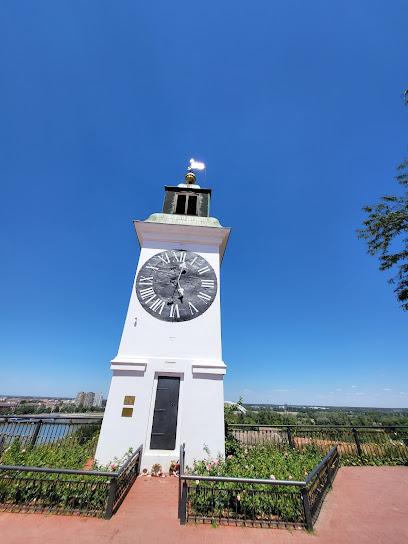
Fruška Gora National Park
Explore the stunning landscapes and rich cultural heritage of Fruška Gora National Park, a must-visit destination for nature lovers and adventure seekers in Serbia.
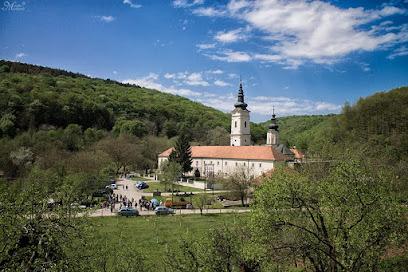
Limanski Park
Discover the serene beauty of Limanski Park in Novi Sad, where lush landscapes and recreational activities await every visitor.
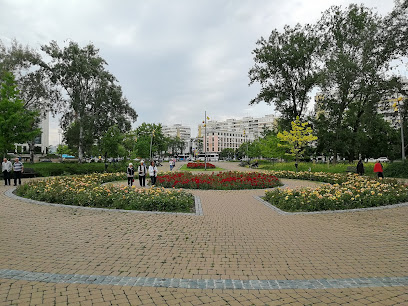
Serbian National Theatre
Explore the Serbian National Theatre in Novi Sad, a cultural hub showcasing exceptional performances and a rich artistic heritage.
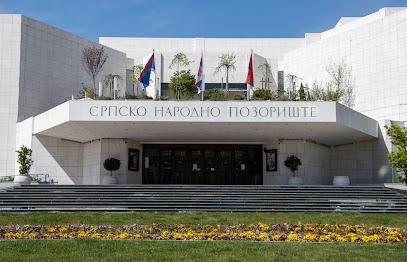
Special Nature Reserve ''Zasavica''
Discover the breathtaking biodiversity of Special Nature Reserve 'Zasavica', Serbia's hidden gem for nature lovers and eco-tourists.
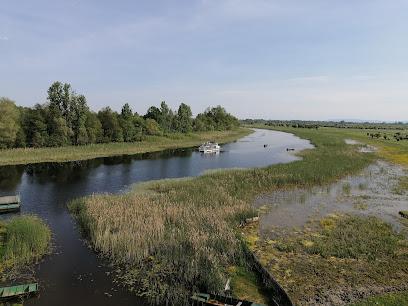
Futoški Park
Explore Futoški Park: A beautiful green oasis in Novi Sad perfect for relaxation, leisure walks, and immersing in nature's beauty.
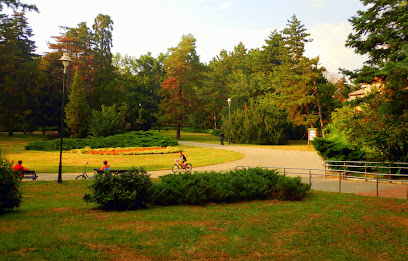
Velika Remeta Monastery
Discover the spiritual sanctuary of Velika Remeta Monastery, a cultural treasure nestled in the Serbian countryside with stunning architecture and serene landscapes.
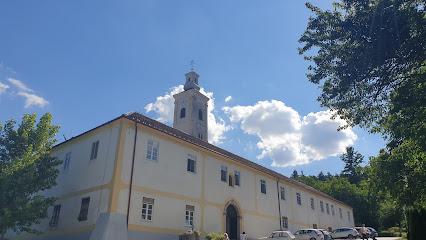
Krušedol Monastery
Discover the tranquility and rich history of Krušedol Monastery, a stunning Serbian gem nestled in lush landscapes, perfect for cultural exploration.
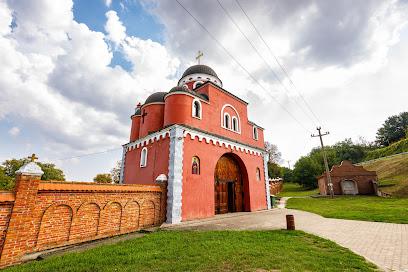
Church of the Name of Mary
Explore the serene beauty of the Church of the Name of Mary in Novi Sad, a stunning Catholic church with exquisite stained-glass windows and rich cultural heritage.
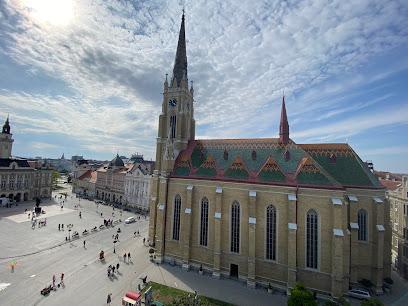
Grgeteg Monastery
Explore the rich history and serene beauty of Grgeteg Monastery, a cherished cultural and spiritual landmark in Serbia.
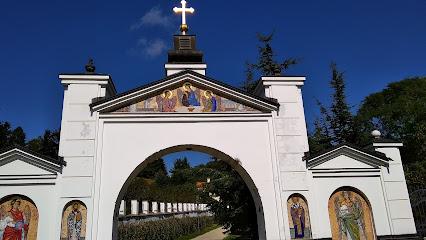
Novi Sad Synagogue
Discover the architectural beauty and rich history of the Novi Sad Synagogue, a cultural gem in the heart of Serbia's vibrant city.
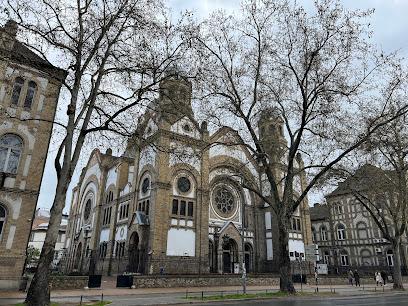
Muzej Vojvodine
Discover the cultural richness of Vojvodina at Muzej Vojvodine, a captivating museum showcasing history, art, and heritage in Novi Sad.
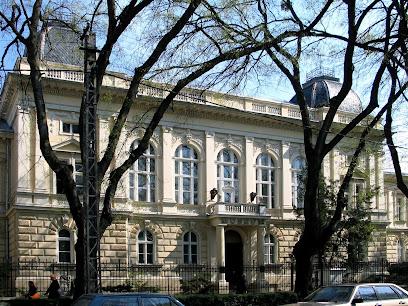
Monument of Svetozar Miletić
Explore the historic Monument of Svetozar Miletić in Novi Sad, a significant memorial celebrating Serbian culture and history.
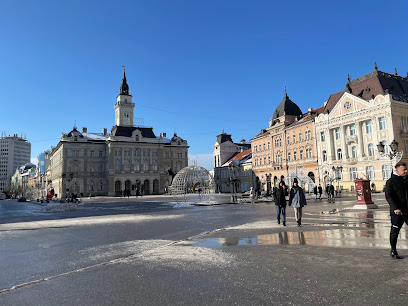
Fruška Gora
Discover the enchanting beauty of Fruška Gora, Serbia's serene mountain range filled with hiking trails, rich wildlife, and historic monasteries.
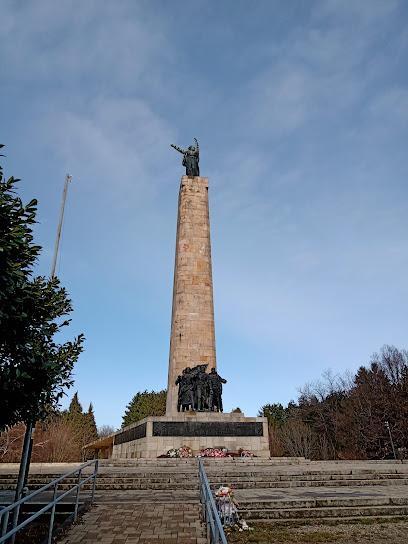
St. Nicholas Cathedral
Explore the serene beauty and rich history of St. Nicholas Cathedral, a must-see Orthodox church in Sremski Karlovci, Serbia.
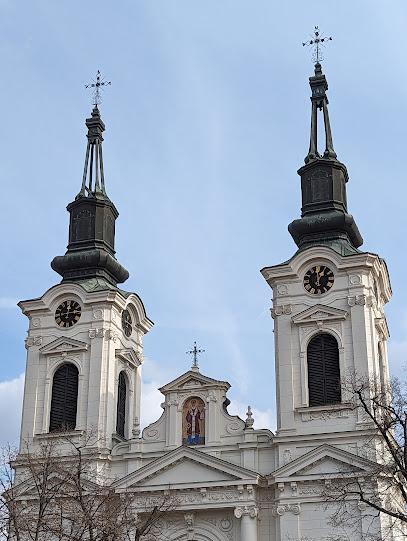
Essential places to dine
Petrus Caffe
Discover the culinary delights at Petrus Caffe in Novi Sad - where local flavors meet international cuisine in a cozy atmosphere.
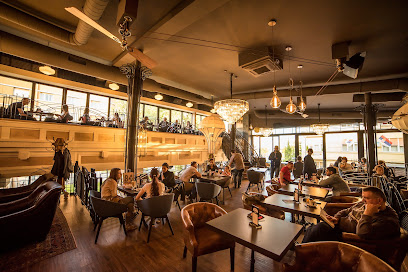
Piknik
Discover Piknik in Novi Sad: A riverside restaurant offering delightful cuisine and vibrant atmosphere perfect for any occasion.
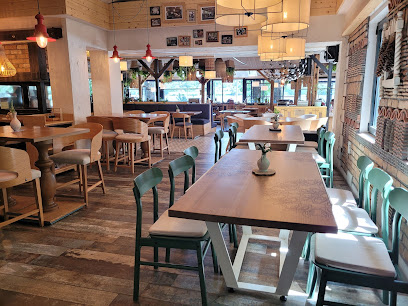
Plava Frajla
Experience authentic Serbian cuisine at Plava Frajla in Novi Sad – where traditional flavors meet modern hospitality.
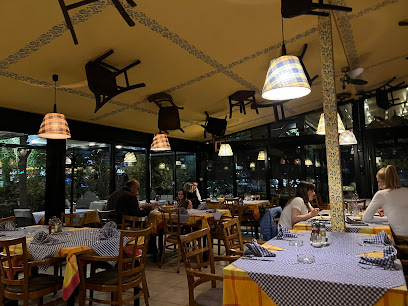
The Camelot Novi Sad
Discover exquisite cuisine at The Camelot Novi Sad, where tradition meets innovation in every dish.
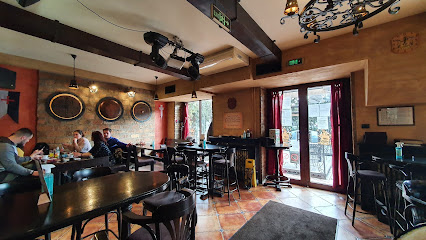
Čarda Aqua Doria
Discover the flavors of Serbia at Čarda Aqua Doria – where every meal is a celebration of local cuisine amidst breathtaking views.
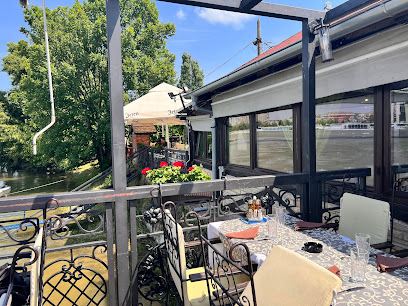
Toster Bar
Experience the vibrant taste of American fast food at Toster Bar in Novi Sad – where quality meets flavor in every bite.
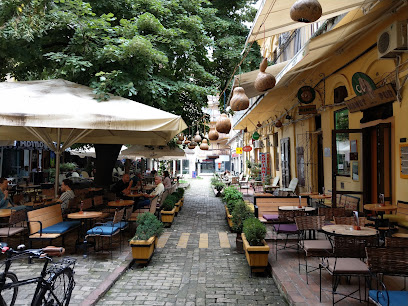
Terasa
Experience exquisite dining at Terasa in Petrovaradin with breathtaking views of the Danube River and delicious local cuisine.
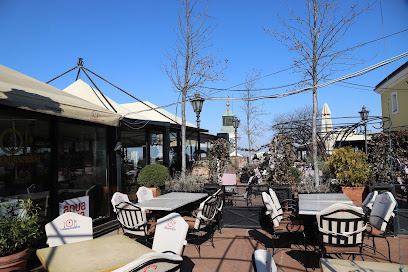
Lazin Salaš
Experience authentic Serbian cuisine at Lazin Salaš in Novi Sad - where tradition meets flavor in a cozy setting.
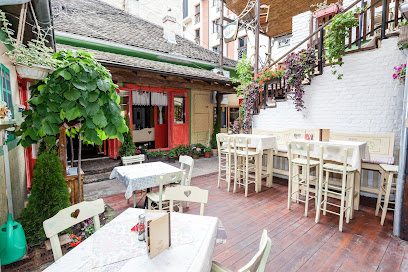
Lanterna
Experience authentic Serbian cuisine at Lanterna, where every dish tells a story of tradition and flavor in the heart of Novi Sad.
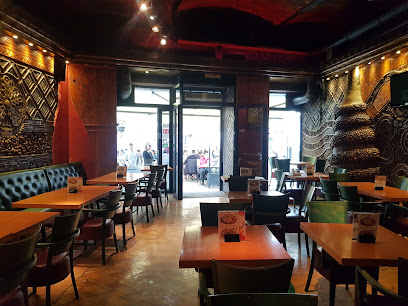
Restaurant Sokace
Experience authentic Serbian cuisine at Restaurant Sokace in Novi Sad – where tradition meets modern culinary artistry.
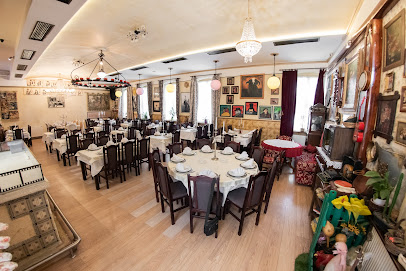
Giardino
Experience the perfect blend of culinary delights and nightlife at Giardino in Novi Sad - where every visit is a celebration.
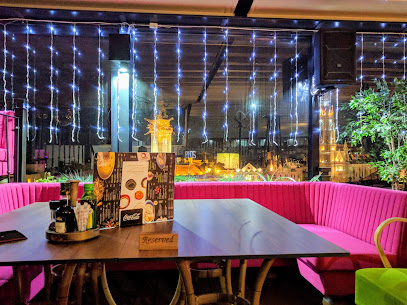
Kombinat
Experience the vibrant culinary scene at Kombinat in Novi Sad with delicious dishes that blend local traditions and international flavors.
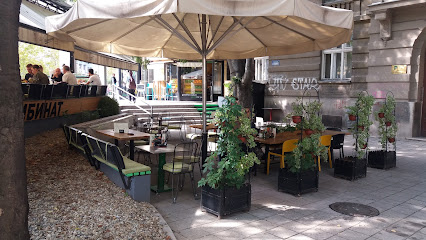
Rosetto
Discover Rosetto in Novi Sad - where local flavors meet international cuisine in a warm and inviting atmosphere.
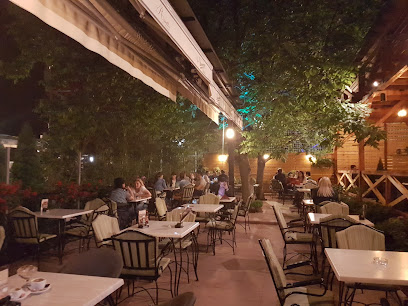
Project 72 Creative Local Cusine
Experience the vibrant flavors of soul food at Project 72 in Novi Sad, where creativity meets tradition in every delicious dish.
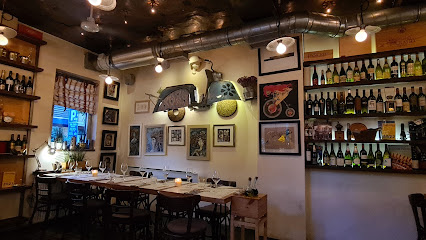
Restaurant & Pizzeria Savoca
Experience authentic Italian cuisine at Restaurant & Pizzeria Savoca in Novi Sad—where every pizza tells a delicious story.
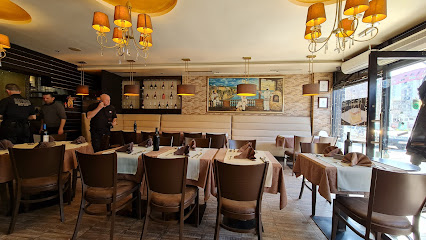
Markets, malls and hidden boutiques
Promenada
Discover the vibrant shopping experience at Promenada, Novi Sad's premier shopping destination with top brands, dining, and entertainment.
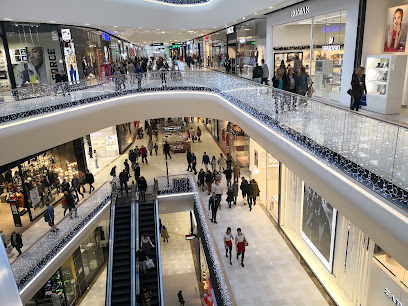
BIG Novi Sad
Discover the ultimate shopping experience at BIG Novi Sad, featuring a vast selection of stores, dining options, and entertainment for all ages.
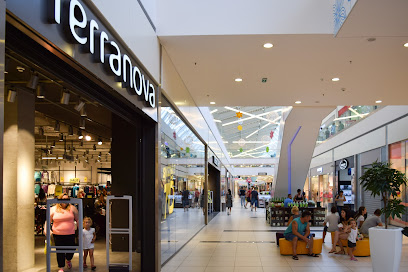
Mercator Center
Explore Novi Sad's Mercator Center for an unforgettable shopping experience filled with diverse shops, local flavors, and vibrant atmosphere.
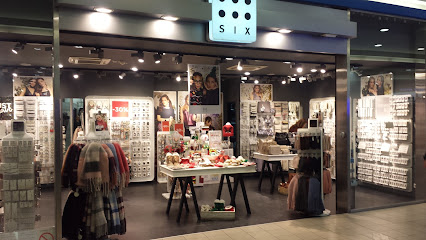
TC Bazar
Discover the vibrant shopping and dining experience at TC Bazar, a hub of culture and commerce in Novi Sad.
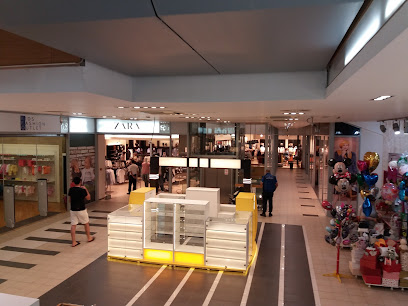
SEPHORA NOVI SAD
Discover the ultimate beauty destination at Sephora Novi Sad, featuring an extensive range of cosmetics, skincare, and fragrances.
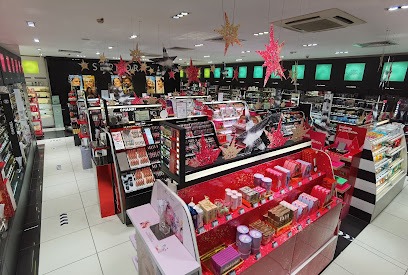
Elephant City Shopping Center
Experience the vibrant shopping scene at Elephant City Shopping Center, Novi Sad's premier destination for retail therapy and family fun.
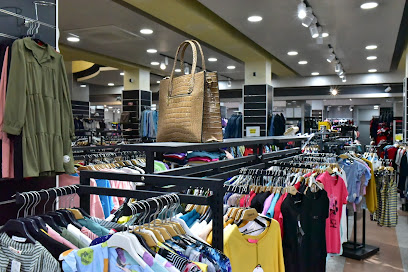
New Nork Shopping Center
Explore the New York Shopping Center in Novi Sad for an unforgettable shopping and dining experience that caters to all tastes and preferences.
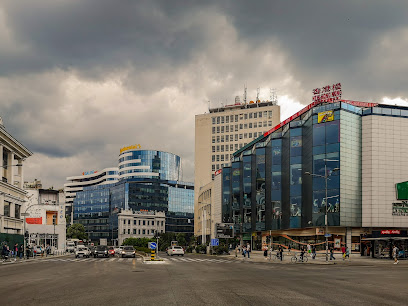
ZOO Market
Discover the ultimate pet paradise at ZOO Market in Novi Sad, where a world of pets and supplies awaits you.
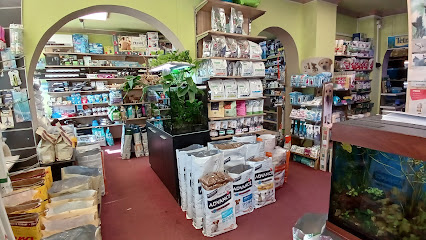
Unikatni kutak
Explore the treasures of local craftsmanship at Unikatni kutak, where unique jewelry and fashion await in the heart of Novi Sad.
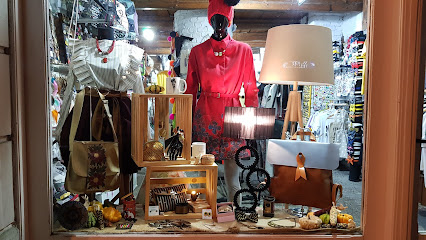
Urban Shop
Discover Urban Shop in Novi Sad for stylish footwear and skate gear, where local trends meet the vibrant culture of the city.
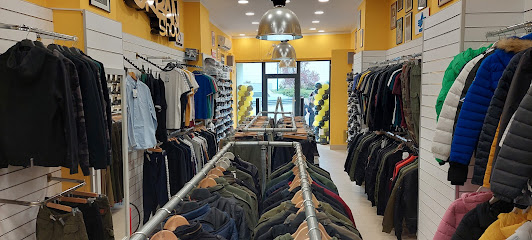
Repro Shop
Explore the vibrant Repro Shop in Novi Sad, a haven for bead lovers and creative spirits, filled with unique supplies and local artistry.
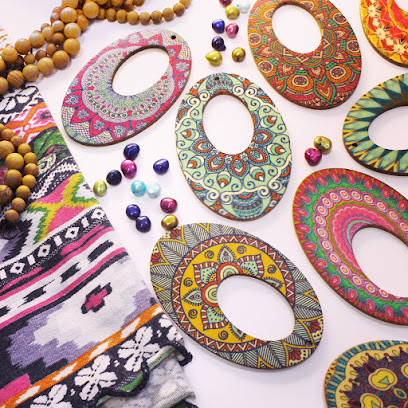
Svet Mode Exclusive
Explore unique fashion at Svet Mode Exclusive, a boutique in Novi Sad that offers a curated selection of stylish clothing and accessories.
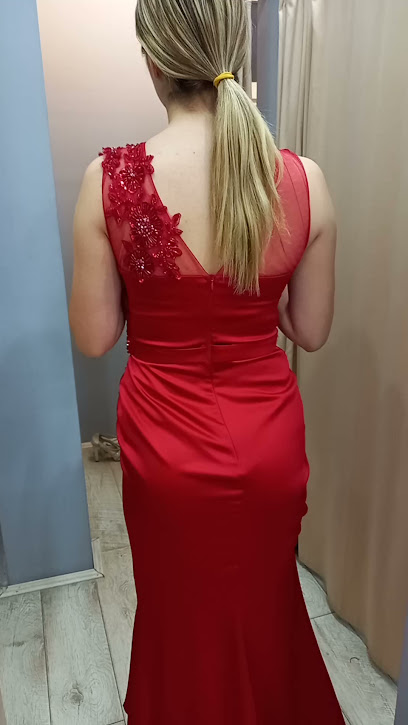
Suveniri Souvenirs Novi Sad
Explore the best of Serbian culture at Suveniri Souvenirs in Novi Sad – a treasure trove of unique keepsakes and local delights.
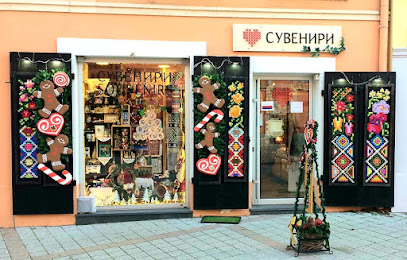
Fashion&Friends
Explore the vibrant fashion scene at Fashion&Friends in Novi Sad, where stylish men's and women's clothing awaits every discerning shopper.
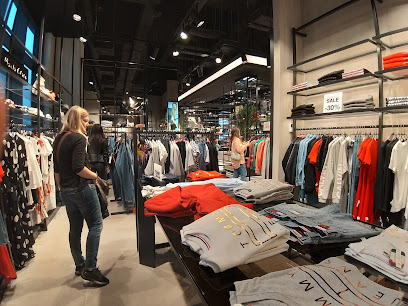
Gift shop Drvce Sreće
Explore Drvce Sreće Gift Shop in Novi Sad for unique Feng Shui items, handcrafted jewelry, and authentic Serbian souvenirs that captivate the spirit.
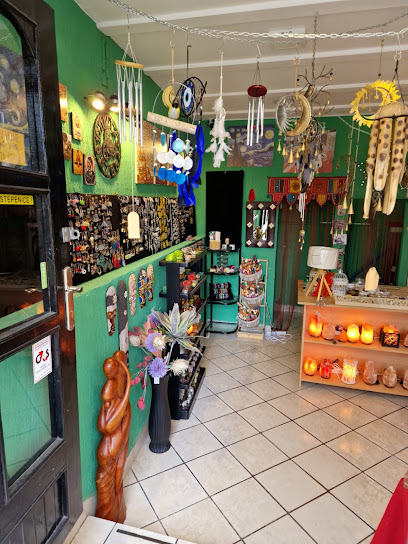
Essential bars & hidden hideouts
Irish Pub
Discover the vibrant spirit of Ireland at the Irish Pub Red Cow in Novi Sad, offering authentic dishes, local brews, and live music.
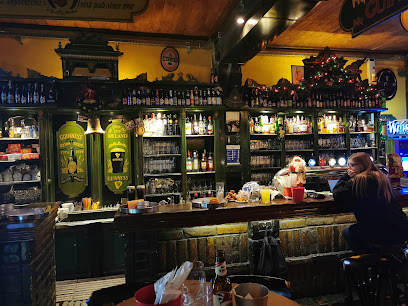
Shamrock bar
Discover Novi Sad's vibrant nightlife at Shamrock Bar, where great drinks, live music, and a friendly atmosphere await.
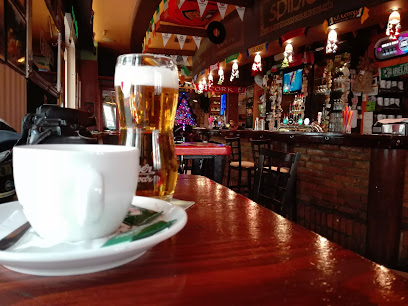
PUBeraj
Discover PUBeraj, a vibrant bar in Novi Sad, perfect for enjoying local drinks and socializing in a lively atmosphere.
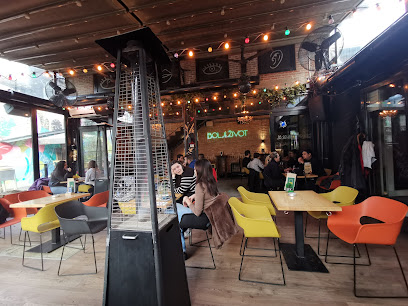
London Pub
Discover the vibrant atmosphere of London Pub in Novi Sad, where local flavors and lively nightlife blend seamlessly for an unforgettable experience.
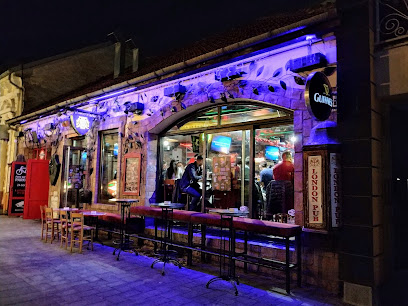
Absolut
Discover the vibrant nightlife at Absolut, Novi Sad's premier cocktail bar and lounge, offering innovative drinks and an inviting atmosphere.
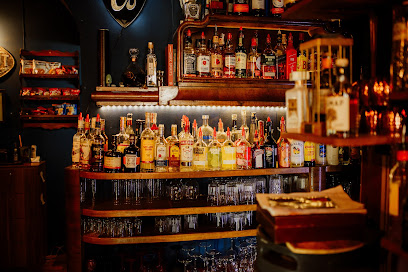
Sketch Bar
Indulge in a delightful brunch experience at Sketch Bar, Novi Sad's vibrant spot for coffee, brews, and culinary creativity.
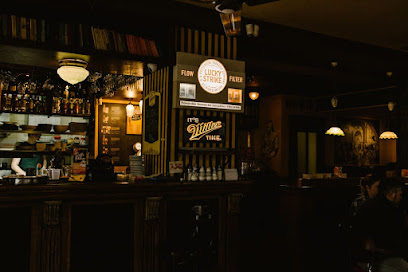
G-Pub Gregors Pub
Discover G-Pub Gregors Pub in Novi Sad, a vibrant gastropub offering delicious cuisine and a lively atmosphere for an unforgettable dining experience.
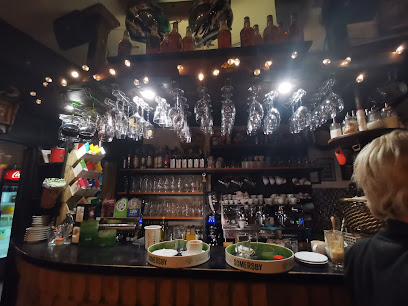
Mazut Pub
Experience the vibrant atmosphere of Mazut Pub in Novi Sad, where craft beer and great company come together in a cozy setting.
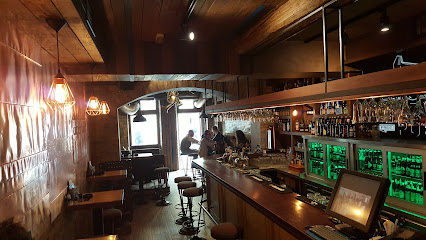
Brati's Pub
Experience the vibrant spirit of Novi Sad at Brati's Pub, where delicious food and drinks meet a lively local atmosphere.
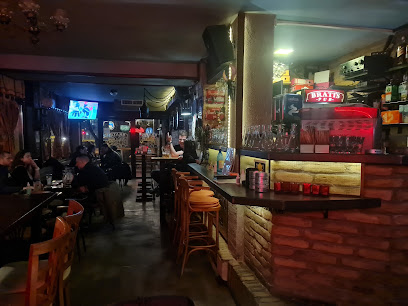
Škripa Pub
Discover the lively Škripa Pub in Novi Sad, where authentic local culture meets a vibrant nightlife experience with great drinks and friendly faces.
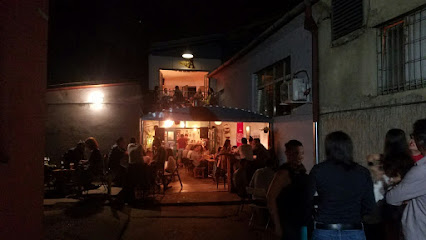
Bar&cafeteria BARaBAR
Experience the lively atmosphere and local flavors at BARaBAR, the must-visit bar and cafeteria in Novi Sad.
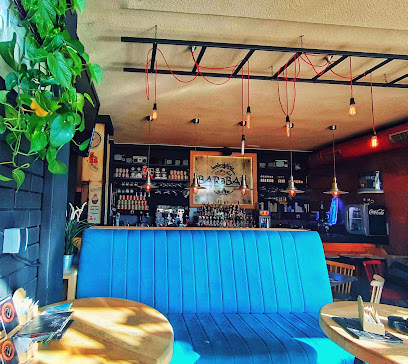
The Pub
Discover the vibrant atmosphere of The Pub in Novi Sad, where delicious food, refreshing drinks, and local culture converge for an unforgettable experience.
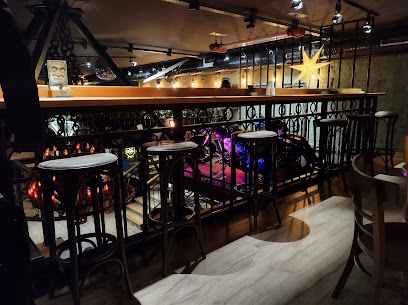
Bridge Bar
Experience the serenity of the Danube at Bridge Bar, a perfect blend of refreshing drinks and stunning views in Novi Sad.
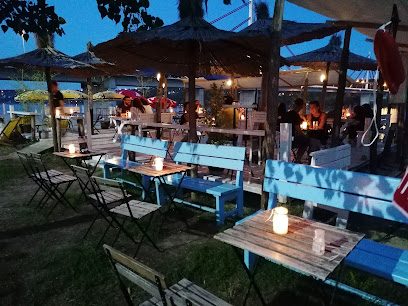
Mamut Pub
Immerse yourself in the lively atmosphere of Mamut Pub, a must-visit destination for tourists in Novi Sad, offering a diverse drink menu and vibrant nightlife.
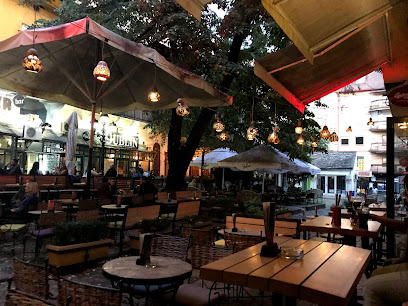
Local Phrases
-
- HelloZdravo
[Zdrah-voh] - GoodbyeDoviđenja
[Doh-vee-jeh-nyah] - YesDa
[Dah] - NoNe
[Neh] - Please/You're welcomeMolim
[Moh-leem] - Thank youHvala
[Hvah-lah] - Excuse me/SorryIzvinite
[Eez-vee-nee-teh] - How are you?Kako si?
[Kah-koh see?] - Fine. And you?Dobro. A ti?
[Doh-bro. Ah tee?] - Do you speak English?Da li govorite engleski?
[Dah lee goh-voh-ree-teh ehn-gleh-skee?] - I don't understandNe razumem
[Neh rah-zoo-mem]
- HelloZdravo
-
- I'd like to see the menu, pleaseMolio bih meni, molim
[Moh-lee-oh bee meh-nee, moh-leem] - I don't eat meatNe jedem meso
[Neh yeh-dem meh-so] - Cheers!Živeli!
[Zhee-veh-lee!] - I would like to pay, pleaseŽelim da platim, molim
[Zheh-leem dah plah-teem, moh-leem]
- I'd like to see the menu, pleaseMolio bih meni, molim
-
- Help!Pomoć!
[Poh-mohch!] - Go away!Idi odavde!
[Ee-dee oh-dahv-deh!] - Call the Police!Pozovite policiju!
[Poh-zoh-vee-teh poh-lee-tsee-yoo!] - Call a doctor!Pozovite doktora!
[Poh-zoh-vee-teh dohk-toh-rah!] - I'm lostIzgubio sam se
[Eez-goo-byoh sahm seh] - I'm illBolestan sam
[Boh-leh-stahn sahm]
- Help!Pomoć!
-
- I'd like to buy...Želeo bih da kupim...
[Zheh-leh-oh bee dah koo-peem...] - I'm just lookingSamo gledam
[Sah-moh gleh-dahm] - How much is it?Koliko košta?
[Koh-lee-koh kohs-tah?] - That's too expensiveTo je previše skupo
[Toh yeh preh-vee-sheh skoo-poh] - Can you lower the price?Možete li spustiti cenu?
[Moh-zheh-teh lee spoos-tee-tee tseh-noo?]
- I'd like to buy...Želeo bih da kupim...
-
- What time is it?Koliko je sati?
[Koh-lee-koh yeh sah-tee?] - It's one o'clockJedan je sat
[Yeh-dahn yeh saht] - Half past (10)Pola (deset)
[Poh-lah (deh-seht)] - MorningJutro
[Yoo-troh] - AfternoonPopodne
[Poh-pohd-neh] - EveningVeče
[Veh-cheh] - YesterdayJuče
[Yoo-cheh] - TodayDanas
[Dah-nahs] - TomorrowSutra
[Soo-trah] - 1Jedan
[Yeh-dahn] - 2Dva
[Dvah] - 3Tri
[Tree] - 4Četiri
[Cheh-tee-ree] - 5Pet
[Peh-t] - 6Šest
[Shehst] - 7Sedam
[Seh-dahm] - 8Osam
[Oh-sahm] - 9Devet
[Deh-veht] - 10Deset
[Deh-seht]
- What time is it?Koliko je sati?
-
- Where's a/the...?Gde je...
[Gdeh yeh...] - What's the address?Koja je adresa?
[Koh-yah yeh ah-deh-sah?] - Can you show me (on the map)?Možete li da mi pokažete (na mapi)?
[Moh-zheh-teh lee dah mee poh-kah-zheh-teh (nah mah-pee)?] - When's the next (bus)?Kada je sledeći (autobus)?
[Kah-dah yeh sleh-deh-chee (ow-toh-boos)?] - A ticket (to ....)Jedna karta (za ....)
[Yeh-dnah kahr-tah (zah ....)]
- Where's a/the...?Gde je...
History of Novi Sad
-
Novi Sad was officially founded in 1694, when Serb merchants established a settlement across the Danube from the Petrovaradin fortress. The strategic location on the river facilitated trade and helped the town grow into a bustling commercial hub.
-
The Petrovaradin Fortress, often called the 'Gibraltar of the Danube,' dates back to the Roman era but was significantly expanded by the Habsburgs in the 17th and 18th centuries. The fortress played a crucial role in defending against Ottoman invasions and has a labyrinthine network of tunnels stretching over 16 kilometers.
-
During the Revolutions of 1848, Novi Sad was a key battleground. The city was heavily bombarded by the Hungarian army, resulting in significant destruction. The aftermath saw Novi Sad being rebuilt and gaining a reputation as a center of Serbian culture and political thought.
-
By the late 19th century, Novi Sad had become known as the 'Serbian Athens' due to its vibrant cultural scene. Institutions like Matica Srpska, the oldest Serbian cultural and scientific institution, were established, fostering an environment of intellectual and artistic growth.
-
World War I had a profound impact on Novi Sad. The city, part of the Austro-Hungarian Empire, was transferred to the newly formed Kingdom of Serbs, Croats, and Slovenes, later Yugoslavia, following the Treaty of Trianon in 1920. This shift marked a new era in the city's development.
-
During World War II, Novi Sad was occupied by Axis forces. The city witnessed atrocities, including the infamous 1942 Novi Sad Razzia, where Hungarian forces executed thousands of Serbs, Jews, and Roma. Liberation came in 1944 with the advance of the Red Army and Yugoslav Partisans.
-
In the post-war period, Novi Sad underwent rapid industrialization. The establishment of factories and modernization of infrastructure transformed the city into an industrial and economic powerhouse within Yugoslavia. This period also saw significant urban expansion and population growth.
-
During the Kosovo War in 1999, Novi Sad was heavily bombed by NATO forces, targeting key infrastructure such as bridges, factories, and the oil refinery. The bombing caused widespread damage and had a lasting impact on the city's economy and development.
-
Today, Novi Sad is a vibrant, multicultural city known for its festivals, including the world-renowned EXIT music festival held at the Petrovaradin Fortress. As the European Capital of Culture for 2022, Novi Sad continues to celebrate its rich history while embracing a modern, dynamic future.
Novi Sad Essentials
-
Novi Sad is easily accessible by various means of transportation. The nearest international airport is Belgrade Nikola Tesla Airport (BEG), located approximately 80 kilometers away. From the airport, you can take a shuttle bus, taxi, or rent a car to reach Novi Sad. Additionally, Novi Sad is well-connected by train and bus services from major Serbian cities and neighboring countries. The city lies along the E75 highway, making it convenient for those traveling by car.
-
Novi Sad has a well-organized public transportation system, primarily consisting of buses. Tickets can be purchased at kiosks or directly from the driver. Taxis are also readily available and relatively affordable. For a more flexible option, consider renting a bicycle, as the city is bike-friendly with numerous cycling paths. Walking is another great way to explore the city's compact center.
-
The official currency in Serbia is the Serbian Dinar (RSD). Credit and debit cards are widely accepted in most hotels, restaurants, and shops. ATMs are plentiful throughout Novi Sad, making it easy to withdraw cash as needed. However, it's advisable to carry some cash for smaller establishments, local markets, and public transportation.
-
Novi Sad is generally considered a safe city for tourists. Standard precautions should be taken, such as avoiding poorly lit areas at night and keeping an eye on personal belongings in crowded places. While there are no specific high-crime areas targeting tourists, it's always best to be vigilant. The neighborhoods of Liman and Rotkvarija are known for being particularly safe and welcoming.
-
In case of an emergency, dial 112 for immediate assistance, which will connect you to police, fire, and medical services. The main hospital in Novi Sad is the Clinical Center of Vojvodina, which provides comprehensive medical care. Pharmacies are readily available for minor health issues. Having travel insurance that covers medical emergencies is highly recommended.
-
Fashion: Do dress modestly when visiting religious sites. Casual attire is acceptable in most other places. Religion: Do respect local customs and traditions, especially in religious settings. Public Transport: Do offer your seat to elderly passengers. Don't eat or drink on public transportation. Greetings: Do greet people with a handshake; a friendly 'Zdravo' (Hello) is commonly used. Eating & Drinking: Do try local dishes and accept hospitality graciously. Don't leave food on your plate, as it may be seen as wasteful.
-
To experience Novi Sad like a local, visit the vibrant farmers' market at Futoška pijaca, where you can buy fresh produce and local delicacies. Spend an evening at one of the kafanas (traditional restaurants) to enjoy live music and authentic Serbian cuisine. Don't miss the Petrovaradin Fortress, which offers stunning views of the Danube River and the city. For a unique cultural experience, attend the EXIT Festival, one of Europe's largest music festivals held every July.
Trending Landmark in Novi Sad
Nearby Cities to Novi Sad
-
Things To Do in Belgrade
-
Things To Do in Pančevo
-
Things To Do in Subotica
-
Things To Do in Smederevo
-
Things To Do in Szeged
-
Things To Do in Tuzla
-
Things To Do in Pecs
-
Things To Do in Arad
-
Things To Do in Kragujevac
-
Things To Do in Kraljevo
-
Things To Do in Kecskemet
-
Things To Do in Sarajevo
-
Things To Do in Zenica
-
Things To Do in Banja Luka
-
Things To Do in Jajce
















